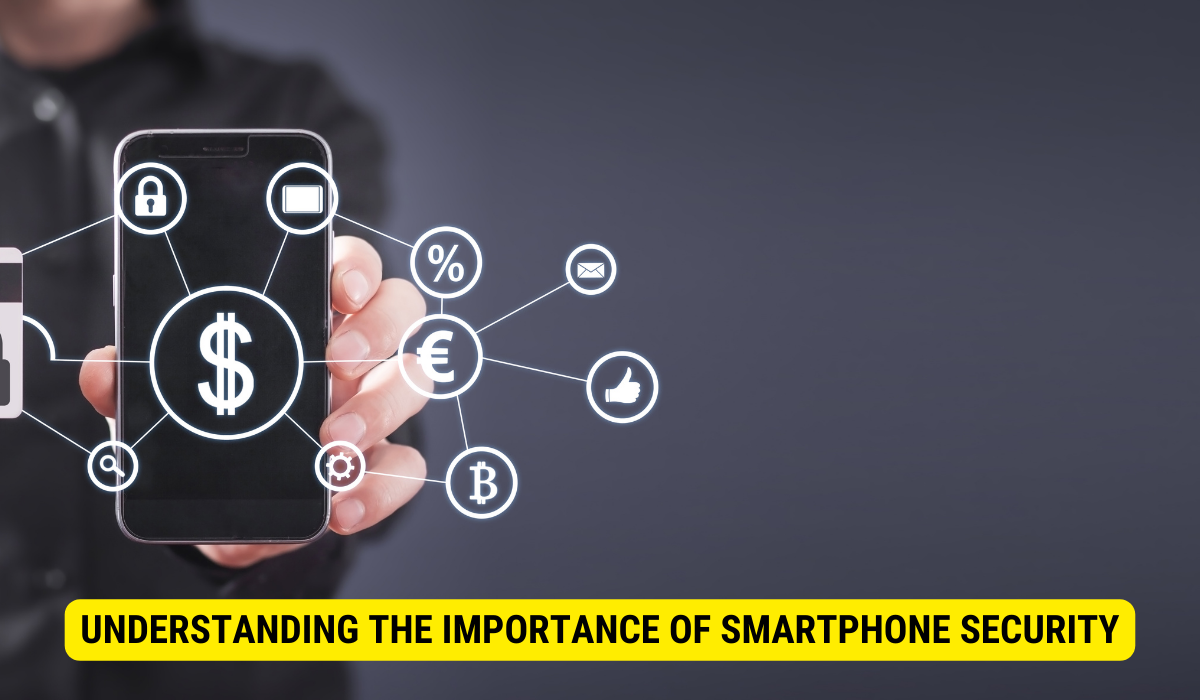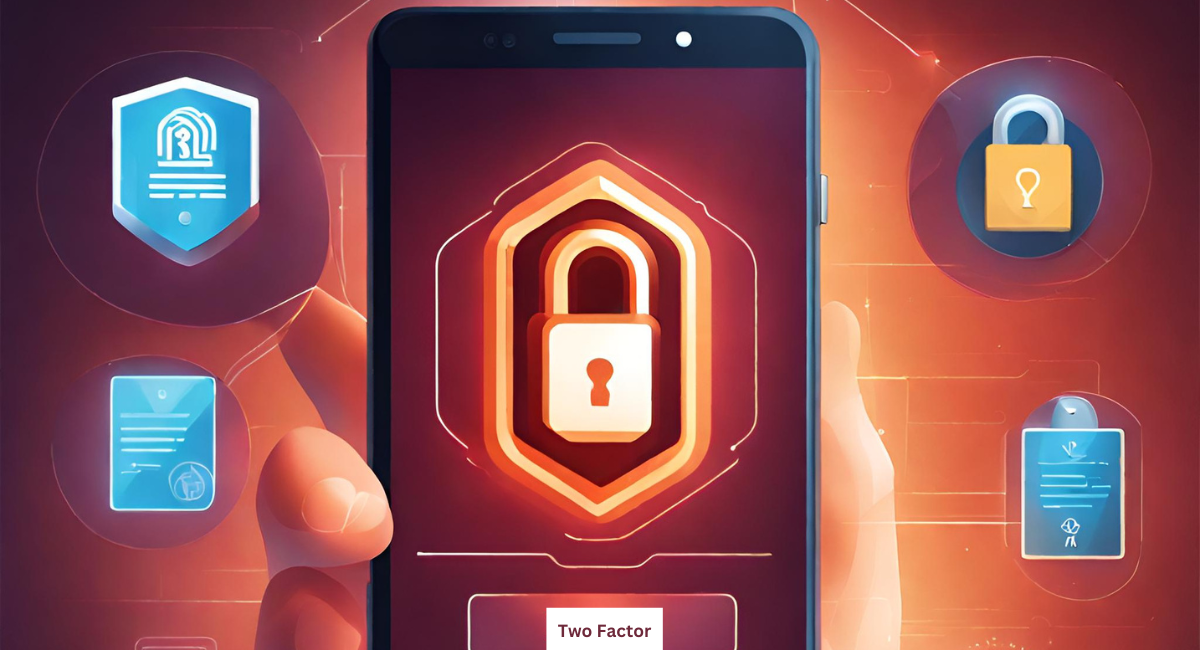Securing your smartphone involves implementing basic and advanced measures to protect the data it contains. This includes setting strong passwords, updating software regularly, encrypting data, enabling two-factor authentication, practicing safe internet habits, and managing apps and their permissions effectively.
In today’s digital age, smartphones have become integral to our lives. We rely on them for communication, banking, shopping, and entertainment. With the increasing amount of sensitive information stored on our smartphones, it is crucial to prioritize smartphone security and protect our data from potential threats. Together, we will understand the importance of smartphone security, implementing basic security measures, utilizing advanced security features, practicing safe internet habits, and managing app permissions to safeguard your data effectively.
Understanding the Importance of Smartphone Security
Smartphone security is not just about protecting our device from physical theft; it is about defending the sensitive data stored within it. Unsecured smartphones are vulnerable to various risks, including unauthorized access, data breaches, identity theft, and financial fraud. Furthermore, compromised smartphones can also expose our privacy, personal photos, and confidential messages, leading to potentially distressing consequences.
One of the key reasons why smartphone security is so important is the increasing reliance on smartphones in our daily lives. From communication to entertainment, smartphones have become integral to our routines. We use them to access social media platforms, browse the internet, send and receive emails, make online purchases, and even store important documents. With such extensive usage, our smartphones hold a treasure trove of personal information, making them an attractive target for cybercriminals.
Imagine the consequences if a hacker gains unauthorized access to your smartphone. They could access your emails, social media accounts, and banking information. This could lead to identity theft, where the hacker impersonates you and carries out fraudulent activities in your name. The financial implications of such an incident can be severe, not to mention the emotional distress caused by violating your privacy.
Moreover, smartphones play a significant role in data privacy. As we increasingly rely on them to access social media, browse the internet, and interact with various online platforms, our personal information becomes more exposed and susceptible to exploitation. Cybercriminals are continuously growing their techniques to exploit vulnerabilities in smartphone security, making it essential for users to stay alert and take necessary safety measures.
Another aspect of smartphone security that is often overlooked is the protection of personal photos and confidential messages. Our smartphones have become the primary storage device for capturing and preserving precious memories. From family vacations to special moments with loved ones, our photo galleries hold a wealth of sentimental value. Losing access to these photos due to a security breach can be devastating.
Similarly, confidential messages exchanged through messaging apps can contain sensitive information we wouldn’t want to fall into the wrong hands. Whether discussing personal matters with friends or sharing work-related details, the privacy and security of these conversations are of utmost importance. Ensuring that our smartphones are adequately protected can help prevent unauthorized access to these private conversations.
In conclusion, understanding the importance of smartphone security is crucial for preserving our digital identities and maintaining control over our data. The risks associated with unsecured smartphones are far-reaching and can have severe consequences. By taking proactive measures to enhance smartphone security, such as using strong passwords, enabling two-factor authentication, and keeping software up to date, we can protect ourselves from potential threats and enjoy a safer digital experience.
Basic Smartphone Security Measures
Implementing basic security measures is the foundation for securing your smartphone and data. Here are some essential steps you can take:
Setting strong passwords is of utmost importance when it comes to smartphone security. A strong password is the first defense against unauthorized access to your smartphone. Avoid common passwords or personal information-related combinations. Instead, create a complex password combining uppercase and lowercase letters, numbers, and special characters. Using a combination of different characters makes it tougher for hackers to crack your password and gain access to your device.
You might want to consider employing a password manager to securely store and generate distinct passwords for your various online accounts. Password managers assist you in crafting robust passwords and handling their recall, eliminating the necessity to memorize intricate passwords and diminishing the likelihood of employing identical passwords for multiple accounts.
Regular Software Updates
Keeping your smartphone’s software up to date is crucial for maintaining a secure device. Software updates often cover security patches and bug fixes that address vulnerabilities found in earlier versions. Regularly updating your device’s operating system and apps ensures that your smartphone remains equipped with the latest security enhancements, reducing the risk of potential exploits.
Software updates not only improve the overall performance of your smartphone but also enhance its security features. Developers constantly work on identifying and fixing security loopholes to protect users from potential threats. Neglecting software updates leaves your device vulnerable to attacks that can compromise your personal data and privacy.
Moreover, software updates often introduce new features and functionalities that enhance your smartphone experience. These updates can include improvements in user interface, battery optimization, and compatibility with the latest apps and services. By staying up to date with the latest software updates, you can enjoy the full potential of your smartphone while ensuring its security.
Advanced Security Features to Protect Your Data
While basic security measures provide a solid foundation for smartphone security, utilizing advanced security features can significantly enhance the protection of your data:
Encryption and Its Benefits
Encrypting your smartphone’s data ensures that the information remains inaccessible without the encryption key, even if it falls into the wrong hands. Most modern smartphones offer built-in encryption features that can be enabled in the device settings. Encryption delivers an added layer of security by scrambling your data, making it virtually unreadable to unauthorized individuals.
When you enable encryption on your smartphone, it goes beyond just securing your personal information. It also protects sensitive data such as passwords, credit card details, and confidential documents. With encryption in place, you can have peace of mind knowing that your data is safe, even if your phone gets lost or stolen.
Furthermore, encryption is not limited to just the data stored on your device. It also extends to data transmitted over networks. This means that when you connect to public Wi-Fi networks or use mobile data, your information remains encrypted, safeguarding it from potential eavesdroppers and hackers.
Two-Factor Authentication

Enabling two-factor authentication (2FA) adds an extra layer of security when accessing your smartphone or specific apps. 2FA needs an additional verification step, such as a unique code sent to your recorded email or a fingerprint scan, providing an extra safeguard against unauthorized access.
With the increase in cyber threats and hacking attempts, relying solely on a password for protection is no longer sufficient. Two-factor authentication adds a barrier that makes it significantly harder for attackers to access your smartphone or sensitive data. Even if someone can obtain your password, they still need the second factor, such as your fingerprint or a unique code, to authenticate successfully.
Moreover, two-factor authentication is not limited to just unlocking your smartphone. Many popular apps and online services offer 2FA as an additional security measure. By enabling 2FA on these platforms, you can confirm that even if your login credentials cooperate, unauthorized individuals will still be unable to access your accounts.
It’s important to note that while two-factor authentication offers an additional/extra layer of security, it is not foolproof. It is still crucial to follow other best practices, such as regularly updating your passwords and being cautious of phishing attempts, to maintain a high level of security.
Safe Internet Practices on Your Smartphone
Practicing safe internet habits is crucial for protecting your smartphone and data from online threats:
Secure Browsing Habits
When using your smartphone to look at the internet, prioritize secure browsing habits. Only visit trusted websites with HTTPS encryption. Avoid clicking on suspicious links or downloading files from unconfirmed sources, as they may contain malware or phishing attempts.
Recognizing and Avoiding Phishing Attempts
Phishing attempts deceive users into providing sensitive information by impersonating legitimate entities. Be cautious of unwanted emails, messages, or calls asking for personal or financial information. Avoid interacting with suspicious communications and never share sensitive data without verifying the authenticity of the request.
Managing Apps and Permissions for Better Security
Effectively managing your apps and permissions contributes to a more secure smartphone environment:
Evaluating App Permissions
Before installing any apps, carefully review the permissions they require. Be mindful of apps that request excessive access to your personal information or data that seems unrelated to their functionality. Scrutinize app reviews and developer reputation to ensure the legitimacy of the app’s intentions.
Uninstalling Unnecessary Apps
Regularly review and uninstall unused or unnecessary apps from your smartphone. Unused apps not only consume storage space but may also pose potential security risks. Apps no longer updated or maintained by developers can become vulnerable to exploits, making your smartphone more susceptible to threats.
Key Takeaways
- Smartphone security goes beyond physical protection; it involves guarding sensitive data from unauthorized access, breaches, and cyberattacks.
- Setting robust passwords and using a password manager can enhance your smartphone’s security.
- Updating software ensures the smartphone benefits from the latest security enhancements and bug fixes.
- Advanced features like data encryption and two-factor authentication provide added layers of security against potential threats.
- Safe internet habits, such as secure browsing and avoiding suspicious links, combined with vigilant app permission management, further fortify smartphone data protection.
FAQs
Why is smartphone security important?
Smartphone security is essential because our phones store vast amounts of personal data, and an unsecured phone can lead to data breaches, identity theft, and financial fraud.
How can I ensure my data remains encrypted on my smartphone?
Most modern smartphones offer built-in encryption features that can be activated in device settings, ensuring data remains unreadable to unauthorized individuals.
What is two-factor authentication, and why is it crucial?
Two-factor authentication (2FA) is an additional layer of security requiring a secondary verification step, like a unique code or fingerprint scan, after entering a password, making unauthorized access more challenging.
How can I defend myself from phishing attempts on my smartphone?
Be cautious of unsolicited communications, especially those requesting sensitive information, and always verify the authenticity of the requester before sharing any data.
Why should I be concerned about app permissions on my smartphone?
Some apps may request access to data unrelated to their function, which can pose security risks. It’s essential to review and grant permissions judiciously.
Conclusion
Smartphone security is paramount in the digital age due to the vast personal and sensitive data stored on our devices. By implementing basic and advanced security measures and maintaining safe internet practices, users can significantly mitigate risks, safeguard their digital identity, and ensure a secure smartphone experience.
